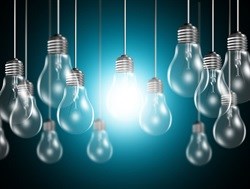
Top stories






More news
















Logistics & Transport
Uganda plans new rail link to Tanzania for mineral export boost










A whitepaper by Royal Philips, a global leader in lighting, has compiled insights from over 10 years of ongoing research on the effect of light on our sleep/wake cycle or "circadian rhythm". It reveals that the amount and quality of light you are exposed to every day may be responsible for your Monday morning blues. Indeed, light ultimately dictates whether you are a morning person or a night owl.
Alarm clocks offer one way to manage the time lag created by our naturally slower circadian rhythm. But we have recently discovered that a specific quality of light hitting the photoreceptors in our eyes not only regulates our internal body clock, but can actually reset it every single day.
For millennia, we like many animals, have used the rising and setting sun to regulate our body clock without realising it. Today, high intensity artificial blue-rich light is also capable of resetting our body clock because of its qualitative resemblance to natural morning light. As we have a natural tendency to sleep in, our modern 9 to 5 lifestyle means we may be getting too little sleep during the working week and lying in at the weekends. Longer sleep at the weekend may compensate for the lack of rest during the week, but can reset a later circadian rhythm the following week, resulting in that 'Monday morning blues' feeling.
"The message from nature is clear," says Light and Sleep Scientist at Philips Research, Luc Schlangen. "Our bodies have evolved a kind of steering wheel, constantly adjusting the sleep wake cycle, driven by light, allowing us to adapt to the differing daylight lengths during the seasons. We can help regulate our body clock through lighting by providing light injections at appropriate times, for instance through brighter office lighting on Monday mornings."
Exposure to blue-rich morning light can speed up our circadian rhythm to wake us up earlier and improve the daily functioning of people with an early morning lifestyle.
Lighting Expert Professor Derk Jan Dijk, University of Surrey adds, "Dimming lights a few hours before bedtime facilitates a more rapid onset to sleep and it will prevent your body clock from being shifted to later hours. If you want to shift your clock to earlier hours it is good to be exposed to light and specifically high intensity blue-rich light, when you wake up."
Philips dedicates 5% of its Lighting sales revenue to R&D (research and development), and is testing and developing a series of energy efficient lighting products for homes, offices, schools and hospital environments that can variously improve alertness, productivity, calm, sleep and mood.